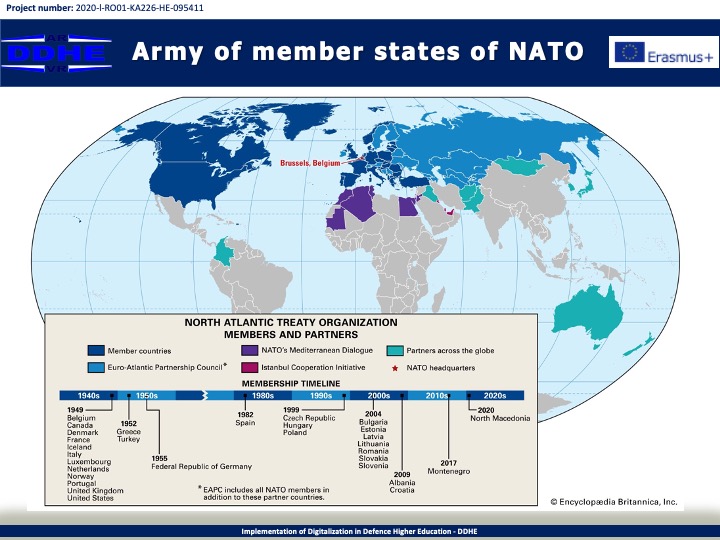
Historical background
Pliki załączników
After World War II in 1945, western Europe was economically exhausted and militarily weak (the western Allies had rapidly and drastically reduced their armies at the end of the war), and newly powerful communist parties had arisen in France and Italy. By contrast, the Soviet Union had emerged from the war with its armies dominating all the states of central and eastern Europe, and by 1948 communists under Moscow’s sponsorship had consolidated their control of the governments of those countries and suppressed all noncommunist political activity. What became known as the Iron Curtain, a term popularized by Winston Churchill, had descended over central and eastern Europe. Further, wartime cooperation between the western Allies and the Soviets had completely broken down. Each side was organizing its own sector of occupied Germany, so that two German states would emerge, a democratic one in the west and a communist one in the east.
In 1948 the United States launched the Marshall Plan, which infused massive amounts of economic aid to the countries of western and southern Europe on the condition that they cooperate with each other and engage in joint planning to hasten their mutual recovery. As for military recovery, under the Brussels Treaty of 1948, the United Kingdom, France, and the Low Countries—Belgium, the Netherlands, and Luxembourg—concluded a collective-defense agreement called the Western European Union. It was soon recognized, however, that a more formidable alliance would be required to provide an adequate military counterweight to the Soviets.
By this time Britain, Canada, and the United States had already engaged in secret exploratory talks on security arrangements that would serve as an alternative to the United Nations (UN), which was becoming paralyzed by the rapidly emerging Cold War. In March 1948, following a virtual communist coup d’état in Czechoslovakia in February, the three governments began discussions on a multilateral collective-defense scheme that would enhance Western security and promote democratic values. These discussions were eventually joined by France, the Low Countries, and Norway and in April 1949 resulted in the North Atlantic Treaty.
Treść jest rozpowszechniana na licencji Pewne Prawa Zastrzeżone Uznanie Autorstwa Na Tych Samych Warunkach 4.0